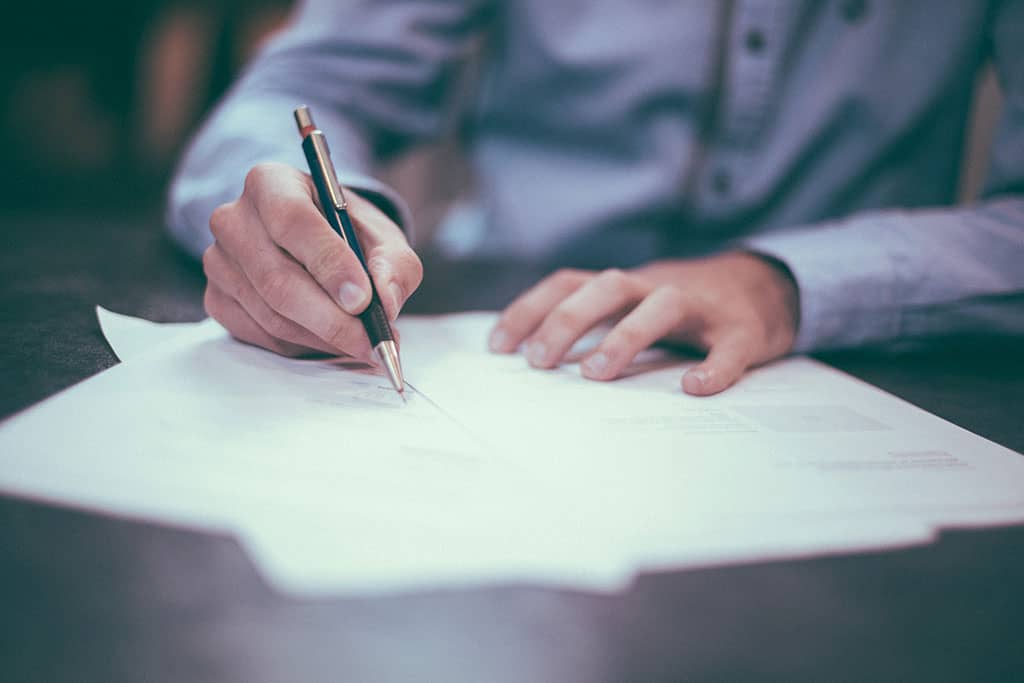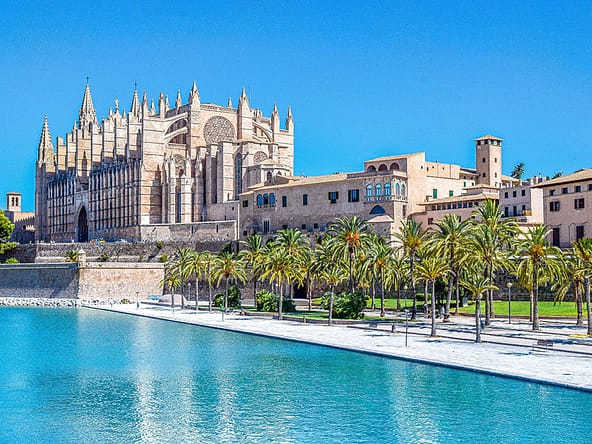The luxury residential real estate market in France and the demand for high-end homes throughout the country is only expected to grow over the next few years. According to Mordor Intelligence, between now and 2029, the market is expected to see a compound annual growth rate (CAGR) of over 4.5%.
Many sought-after locations such as Paris, the French Riviera, and Provence are well known around the world for being popular places to buy luxury property in France. These locations attracts jet-setters as well as residents of France looking to relocate or buy a second home.
The real estate market in the French Riviera is especially robust, remaining resilient through otherwise unstable times, like during the COVID pandemic.
With this type of demand and a portfolio of uber-wealthy buyers, it’s important to fully grasp the local property buying process so an opportunity doesn’t slip through your fingers.
Table of Contents
What Preliminary Research Should Be Conducted Before Making an Offer?
Understanding local market trends and property values of luxury homes in France, including those in the French Riviera, is necessary if you want to make savvy real estate decisions and manage risk. Since France is home to many of the world’s most desirable real estate markets, this information is crucial to invest smartly, plan for the long term and ensure compliance.
To choose a real estate agent who specialises in high-end homes in France, consider the following:
- Experience and expertise, particularly in the part of France where you’ll be looking to buy
- Reputation, which can be determined by references, reviews and testimonials from past clients
- Connections and the agent’s network of professionals
- Ease of communication and accessibility — you’ll be speaking with your agent quite a bit through this process
- Negotiation skills so your agent can secure favorable terms for you
A buyer’s agent represents the person who will make the purchase, not the seller. Agents have access to listings that aren’t publicly available, making it easier to find a home that meets your specific criteria. A buyer’s agent also makes the process of purchasing a home in France much easier if this is your first time moving abroad and you don’t know much about the French real estate system.
How Do You Find the Right Luxury Property For You in France?
There are a number of considerations when looking for a French property that will meet your investment goals and personal criteria.
- Decide how you’ll use the property. Do you want to turn it into another income stream? Will it be your full-time or holiday home? Do you plan to host visitors often?
- Set a budget. The amount you can afford includes the purchase price as well as extra costs like fees, taxes, renovations and maintenance.
- Write a list of your location must-haves. You may need to be close to medical or education facilities, or you may want to be near outdoor or recreational activities.
Consulting with an expert will help you further narrow your list of what you need in a property so you’ll only visit the homes that are right for you.
It’s also important to visit the properties in person. That’s the only way to truly assess the amenities, condition, and location. Inspect the interior and exterior features, spend time exploring the neighbourhood, and consider how compatible the property is with the lifestyle you want.
What Legal Considerations Should Be Taken Into Account Before Making an Offer?
There are several steps to buying property in France. Here’s the basic legal process:
- Find a home you want to buy
- Make an offer to purchase the home
- Choose a notaire
- Have technical surveys conducted
- Sign the initial contract
- Pay the deposit
- Wait for the notaire to conduct land registry research
- Sign the final contract
- Pay the balance of the purchase price
- Register the deed
The notaire (or notary) is a lawyer appointed by the French government, and they take care of various tasks throughout the real estate transaction. Whenever property is purchased, sold, inherited or donated, the notaire will draft the contracts, record details of the transaction, levy taxes, and more.
How Should You Prepare Financially Before Making an Offer?
Unless you plan to buy your property with cash, chances are you’ll need to secure a mortgage. There are various types of mortgages in France, including:
- Capped-rate mortgages
- Fixed-rate mortgages
- Interest-only mortgages
- Variable-rate mortgages
- Bridging loans
The most common type of mortgage in France is the fixed-rate mortgage, which typically lasts for 6 to 25 years. While the rate is higher than you may get with a variable-rate mortgage, there’s no risk because the repayment amount will be the same until it’s paid in full.
In order to get a French mortgage, your mortgage and insurance costs can’t exceed 35% of your gross monthly income.
As a non-resident of France, you may need to meet additional requirements to get a mortgage. For example, the bank may only loan up to 85% of the property value, so you’ll need to find a way to finance the rest.
Moreover, whether you’re a French resident or a foreign buyer, many banks require you to have capital insurance protection so that you’ll be able to repay the mortgage even if you become sick or injured. While this isn’t a legal requirement, it’s common for lenders not to extend credit if you don’t have some sort of backup coverage.
What Is the Correct Way To Make an Offer on a Luxury Property in France?
The purchase process begins by making a written offer from the potential buyer to the seller, called a “promesse d’achat” or an “offre d’achat.” While a verbal offer is used in some cases, it’s safer and often recommended that you make a written offer as well. Your property agent may have a pre-printed form that you can fill out to make the offer.
The written offer should also state that it’s conditional — it’s not an unconditional offer to buy, regardless of the state of the home. This means that if you find that the home is in disrepair or there are other issues that will impact you financially, you’re not expected to pay the amount stated in the initial offer.
What Happens After an Offer Is Accepted?
Once the seller has accepted your offer on the French property, the notaire will write up the initial contract, called the Compromis de Vente. This is the first legal contract between the buyer and seller. The Compromis de Vente will include information such as:
- Detailed property description
- Purchase price, plus agency and notaire fees
- List of furniture and other items included in the purchase
- Results of the diagnostic surveys
- Provisional conditions, such as the buyer securing a mortgage
- Circumstances when the deposit may be forfeited
- Penalties if either party doesn’t adhere to the contract
- Target date of completion
While details may be updated before the contract is finalised, it’s still a legally binding contract.
What Are the Closing Procedures for Buying Luxury Property in France?
Once you sign the Compromis de Vente and pay the deposit, a 10-day cooling-off period will begin. During this time, you can change your mind about purchasing the property and withdraw from the contract. If you decide to withdraw your offer during the cooling-off period, your deposit must be returned to you within three weeks.
If you decide to move forward with the purchase, you and the seller will sign the final contract, called the Acte de Vente. You’ll pay the remaining balance, and at that point, the property is yours. It’s also common to receive a certificate of purchase and a financial statement from the notaire.
What Post-Purchase Considerations Should You Keep in Mind?
Once you’re the official owner of a luxury home in France, you’ll need to consider the ongoing taxes you’re required to pay. This can include local taxes, like housing and property tax, and real estate wealth tax. If you’re going to rent your home out while you’re not there, you’ll also have to pay tax on rental income.
Other post-purchase decisions to make include finding a local property manager and deciding if you’re going to leverage your property as an income stream. Also, you’ll want to integrate into the local community as soon as possible by spending time in town, learning the language and meeting with expats who can help you assimilate.
Final Thoughts on How to make a Successful Offer on a Luxury Property in France
Buying a home in France requires several steps, from conducting preliminary research to determine the type of property you’re interested in to following each step required by law along the way. You’ll also need to secure a mortgage, prepare an official offer, agree on contract terms, and make your payments on time.
For the smoothest, most successful purchase of French Riviera property possible, contact our team of experts here at Home Hunts.





